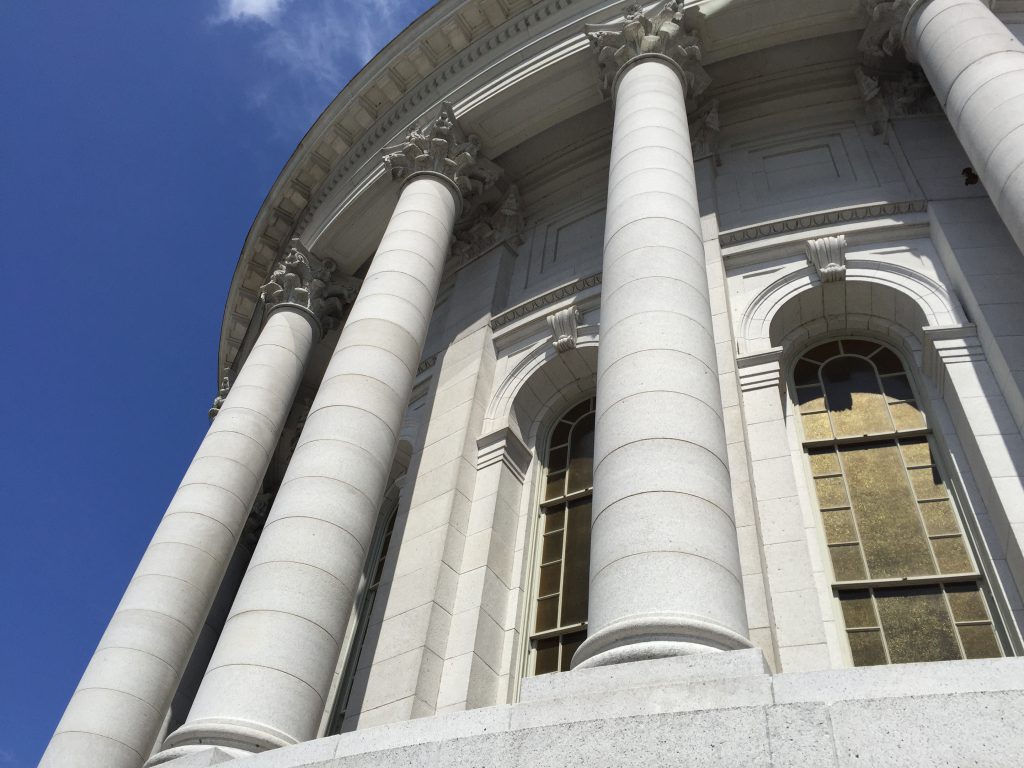Legislature Passes $2 Billion Tax Cut. Again
Republicans rejects Evers call for child care coverage and more school funding.
The ambitious special session that Gov. Tony Evers ordered in August drew to a close in the Assembly Tuesday, his $1 billion agenda torpedoed and replaced with a $2 billion tax cut that he is expected to veto for the second time.
And while some Republican lawmakers defended their decision to replace the governor’s priorities — funding to bolster the state’s child care providers, additional money for schools and the University of Wisconsin and more — Assembly Democrats gave a eulogy for Evers’ plan and castigated the Republican majority for how they’d handled it.
The lawmakers had set aside two hours for debate, but there was no true debate — instead 40 minutes of set speeches, all but three of them from the Democrats, before the foregone conclusion of a party-line vote.
It was, in that respect, a sharp contrast to the top item on the Legislature’s Tuesday to-do list, tweaking and passing legislation that will put Wisconsin funds into renovating the Milwaukee baseball park where the Milwaukee Brewers play in return for a promise from the team’s owners that Major League Baseball won’t leave the state.
As Evers originally proposed it, the special session bill included $365 million in child care support, $243 million to start a self-funded paid family leave program, $120 million in additional higher education funding, plus $197 million for a new UW engineering building, and $100 million for other workforce development programs.
On Sept. 20, the official day Evers had designated in his special session order, Republican legislative leaders took no action. But unlike past special sessions that they simply adjourned, they left the session open, formally introducing Evers’ proposal in the Senate and holding a public hearing.
Then Republican senators approved a top-to-bottom rewrite that consisted primarily of a tax cut on incomes from about $27,000 to more than $300,000, along with some other measures relating to occupational licensing, unemployment insurance, an expanded child care tax credit for parents and some start-up aid for child care providers.
That version passed the Senate Oct. 17 with only Republican votes and came to the Assembly floor Tuesday.
After the Assembly rejected, along party lines, a Democratic amendment to essentially undo the GOP rewrite, Rep. Karen Hurd (R-Fall Creek) cited the child care start-up assistance as one reason she was voting for the Republican revision. She said that the program “helps these small child care in home facilities get started and have the help they need to establish a business, to understand the paperwork that they have to fill out.”
But Rep. Tip McGuire (D-Kenosha) contrasted the rewriting of the special session bill with the way the GOP majority in the Legislature had handled other bills, such as the Brewers stadium legislation and, in June, changes that boosted state shared revenue for municipalities.
“I know this body has done a number of things this session that required negotiation and compromise,” McGuire said. “I think I’ve been supportive of all those efforts throughout the year.
McGuire noted that Evers had told a television interviewer in July he was open to negotiation on a “middle class tax cut” while the Assembly majority leader — Rep. Tyler August (R-Lake Geneva), who McGuire referred to only by his legislative title in keeping with floor session etiquette — was on record as unwilling to do so.
“There’s not a single element, not a single provision, within this bill that was in the governor’s initial special session call,” McGuire observed — and some, he added, were items Evers had vetoed.
Republicans showed no interest in taking Evers up on his willingness to meet and discuss his proposals, he said.
“I know you know how to compromise,” McGuire said. “But you chose not to in this case. And that can only be for one reason, because this is a political document. This is a political stunt…This is not about policy.”
Rep. Deb Andraca (D-Whitefish Bay), said when the Republicans initially moved forward with the Evers legislation, “we had an opportunity and we thought we had a bill, and then the bill was gutted.” What was left, she said, “is a package of pet projects, not a serious policy proposal.”
Rep. Shae Sortwell (R-Two Rivers), countered that some of the provisions in the rewritten legislation included policies that Democrats have supported, such as streamlining criminal background checks in connection with occupational licenses. “Let’s not talk about the fact that somehow it doesn’t have your entire wish list in it,” he said.
“It is not a wish list to demand that our government listen to the thousands of people across the state of Wisconsin who have voiced deep and severe concerns about the lack of child care in their community,” responded Rep. Katrina Shankland (D-Stevens Point). “And no one across the aisle gets to complain about the workforce shortage if you’re not willing to work with us on real child care solutions.”
Rep. Warren Petryk (R-Town of Washington) argued that the Republican Senate revision “included a number of very, very good initiatives” that he said would get more people to work.
One is Petryk’s proposal to revise the state’s unemployment insurance program in ways he said would make it “reemployment assistance” and would lead to faster hiring. (Evers vetoed an earlier version of that, asserting that changing the state’s safety-net programs “are not a silver-bullet solution to our state’s workforce challenges.”)
With that, the Assembly passed the special session bill 62-36, with no Democratic votes. One Republican, Scott Allen (R-Waukesha), joined the Democrats in voting against it. The next stop will be Evers’ desk.
Assembly Republicans pass rewrite of Evers’ special session bill, sending it to likely demise was originally published by the Wisconsin Examiner.























Childcare is a Right in most Westernized countries. Society needs it.
Tax breaks for households earning over $100,000 is a want.
It buys votes!
Tax breaks are desperately needed for the working poor.
Tax breaks must be equitable.
Restore Safety Nets.
As a retiree in the 30% income tax bracket – $45,000 to $50,000 – or close to that, I propose that everyone earning $300,000 or more be taxed at the 30-35% tax bracket.
My taxes should then be reduced to the 5%-10% that many wealthy folks pay these days.
What about state crime labs?
What about money for rail?
What about funding for UWM Engineer School?
The rich get richer and the poor get poorer? Is that what it’s all about?